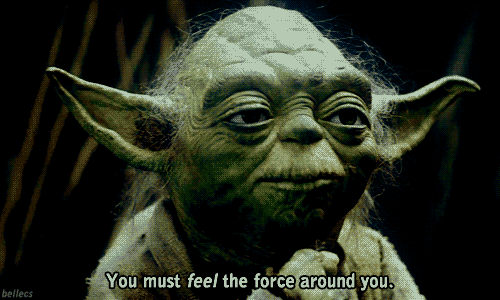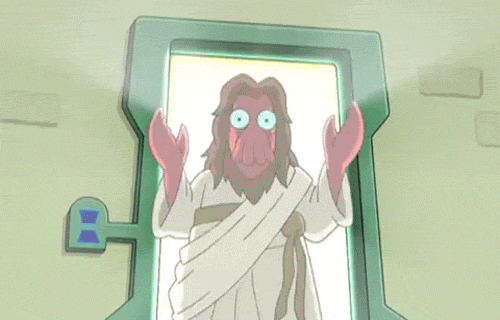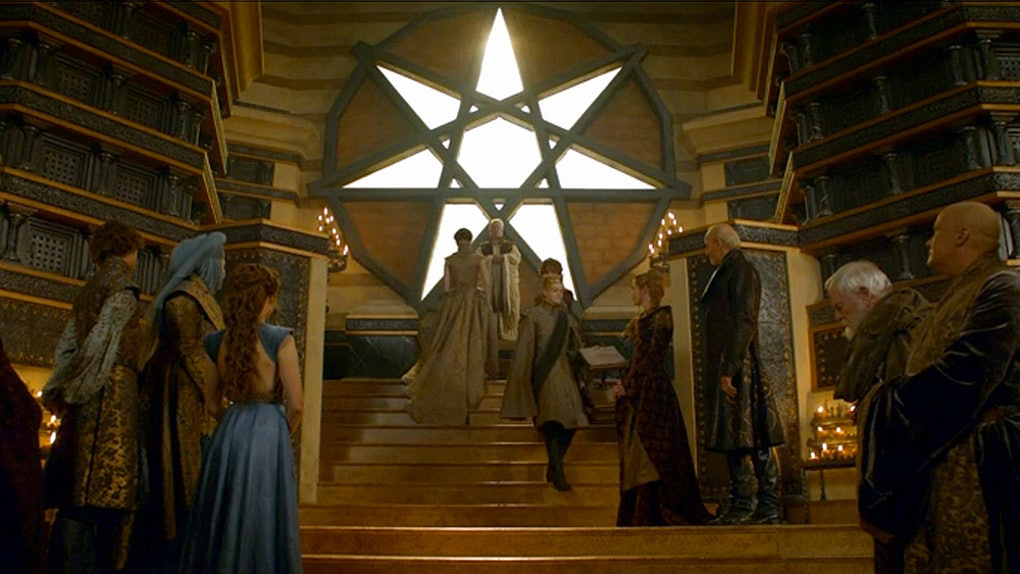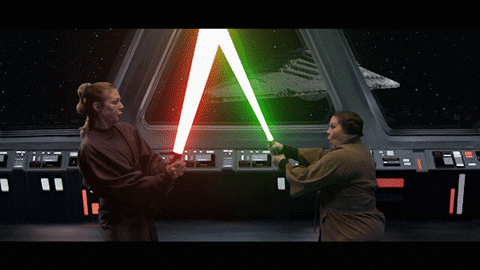by Gina Fernandez

From Robot heaven to Jedi based religions and a 7-faced God, popular films and television series have been incorporating their takes on religion by inventing some hilarious, mystical and peculiar religions of their own that often reference other existing religions. This article will explore 3 fictional religions and religious philosophies in popular films and television series.
1) Robotology – Futurama

“Alexa, say a prayer!”
Robotology is a fictional religion followed by a large portion of robots on the television show – Futurama. This fictional religion satirically mimics the existing religion of Christianity, often replacing Christianity’s prominent figures with ‘divine robots’. Followers of Robotology believe in a Robot Jesus, a Robot devil and a Robot heaven and hell. However, the name of the religion and the Temple of Robotology were inspired by the existing religion of Scientology.
Their rituals also closely parallel Christian rituals including a robot baptism where robots are baptised with ‘Holy motor oil’ which is a satirical take on ‘Holy water’ used by Christians. The main beliefs of robotology include abstinence from activities like smoking, consumption of alcohol and abuse of electricity. This is reflected in the show when a robot named Bender Bending Rodríguez seeks guidance from the Temple of Robotology after developing an addiction to electricity.
Nonetheless, he becomes tempted to commit other ‘Robotology sins’ with his non-robot friends and ends up in Robot hell. Robot hell is similar to the hell portrayed in Inferno which is the first part of a long poem written by Italian poet Dante Alighieri as both hells are depicted to have multiple different levels, thus once again showing parallel to Christian beliefs.
With the unstoppable rise in development of Artificial Intelligence (AI), Robotology might potentially be a closer reality than we think.
2) The faith of the seven – Game of Thrones

In a fictional world filled with fire breathing dragons, a coveted iron throne, an army of the dead and the promise of winter always coming, Game of Thrones is not exempt from religion. This renowned television series features many different religions but the most commonly known and widely practiced religion in the seven kingdoms is ‘the Faith of the Seven’ or most frequently referred to as the ‘New Gods’.
The beliefs associated with ‘the Faith of the Seven’ is that one god exists who holds seven faces or aspects which represents each part of life. These are the Father, the Mother, the Maiden, the Crone, the Warrior, the Smith, and the Stranger. Three of them are male faces/aspects, three are female faces/aspects and one referred to as the Stranger denotes the unknown or death.
The number seven is incredibly significant and can be prominently demonstrated with the religion’s main symbol which is the seven pointed star (as shown in the pictured above). This is an aspect of the fictional religion that often parallels other existing religions such as Catholicim that places a significance on the number 3 and believes that one God composes of 3 persons also known as the ‘Holy Trinity’.
The faith of the seven comprises many social rules as do most existing religions. Some of these social rules include rules against incest, murder of family members and rules for upholding the laws of hospitability and treating others with respect.
Ironically, all these rules are often broken intentionally and sometimes unintentionally by the main characters of the show. In season 5 of the show (spoiler alert), the destruction of an important religious seven sided building known as The Great Sept Baelor by Cersie lannister killed everyone inside; including powerful religious figures. This ultimately led to the demise of power held by the religion in Westeros (one of the seven kingdoms).
Perhaps the producers of Game of Thrones should have stuck to the holy rule of 7 when it came to the number of seasons the show produced. Quite frankly, season 8 was an atrocity that would surely have offended the 7-faced God.
3) Jediism – Star Wars

When we think of Jediism, most of us would probably recall back to the times when we were little; battling our siblings and friends with anything that remotely resembles a lightsaber while simultaneously making weird noises to mimic lightsabers slashing in the air. However, little did we know, Jediism is meant to be a fictional religious philosophy based on the jedi character in Star Wars and references many existing religious philosophies including Buddhism and Daoism.
Primary Jediism beliefs include the belief in the force which is meant to parallel the Daoist beliefs in the dao (a way or path) and that Jar Jar Binks is the most annoying Star Wars character of all time (okay well this might not necessarily be a part of the Jedi belief system but it is definitely part of my own belief system).
The elusiveness of being a Jedi and the principles that follow in becoming one has led some hardcore Star Wars fans identifying with Jediism as their actual religion and advocating for it to be recognised as a real religion.
Those who practice the Jediism religion follow what is known as The Jedi Code which promotes peace, knowledge, and serenity which I do have to say seems quite nice. I mean if we live in an age where Scientology is recognised as a body of religion then maybe it’s time to make way for the Jedis!
In conclusion, religion seems to be a prevalent aspect in the lives of many, so much so that it has been reflected in our popular culture through the movies and television shows we consume. Hence, it can be seen that whether you’re in a galaxy far far away or riding on a fire breathing dragon, you are still subjected to or surrounded by religious dogma and a degree of expected piousness. Well, all I can say is – MAY THE FORCE BE WITH YOU!


